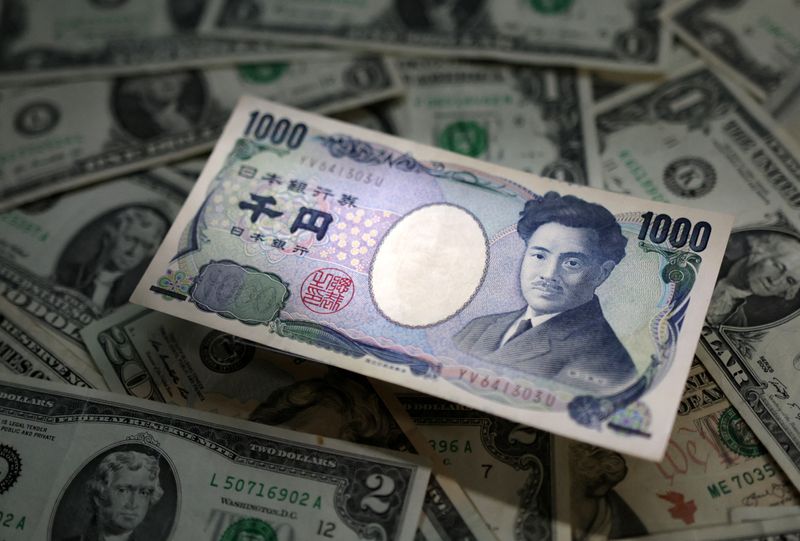By Saqib Iqbal Ahmed
NEW YORK (Reuters) -The dollar slipped against most major currencies on Wednesday after July U.S. job openings data signaled a softening labor market, tilting the odds further in favor of larger interest rate cuts by the Federal Reserve.
Traders boosted bets that the Fed will deliver a half-a-percentage-point reduction at its next meeting, following news that job openings in July fell to the lowest level in 3-1/2 years.
Friday's U.S. payrolls report could offer further clues on the timing and pace of Fed rate cuts.
"The U.S. central bank must not keep interest rates too high much longer or it risks causing too much harm to employment, Atlanta Federal Reserve President Raphael Bostic said on Wednesday.
The dollar index, which measures the U.S. currency's strength against six major peers, was down 0.3% at 101.4. The dollar slipped 1% to 144.07 yen, a one-week low, as global financial markets generally avoided riskier assets.
U.S. stocks remained weak after Tuesday's sharp sell-off sparked by concerns about the U.S. economy and tech sector valuations.
Soft U.S. manufacturing data released on Tuesday helped fan worries about a hard landing for the world's biggest economy.
The dollar, which tumbled more than 2% against a basket of currencies in August, has steadied as rising volatility in global financial markets lifted demand for safer currencies.
"Stock market instability and dropping U.S. yields have made the yen a strong performer," said Marc Chandler, chief market strategist at Bannockburn Global Forex.
The dollar index was about 1% above its late August low of 100.51.
"The USD has rebounded but is afraid to rebound any further until it gets more information," Brad Bechtel, global head of FX at Jefferies, said in a note. "After Friday's print we'll either be 100 or lower or 104 or higher in DXY by my reckoning."
Economists surveyed by Reuters expect Friday's report to show an increase of 165,000 U.S. jobs in August, after a rise of 114,000 in July.
Investors will also keep a close eye on jobless claims on Thursday.
The euro was 0.2% higher at $1.107075, recovering from early marginal declines.
Euro zone business activity received a boost from France hosting the Olympic Games last month but the malaise in the bloc is likely to return once the Paralympics wraps up as demand remains weak, a survey showed.
The Canadian dollar rose 0.3% against its U.S. counterpart after the Bank of Canada cut its key policy rate by 25 basis points to 4.25% as forecast but expressed concern that weaker-than-expected growth might mean inflation falls too quickly.

Sterling rose 0.2% to $1.3138 after weakening to a low of $1.3101 overnight.
With investors avoiding riskier assets, cryptocurrencies faltered on Tuesday. Bitcoin fell about 1% to $57,751 and ether slipped about 0.8% to $2,444.